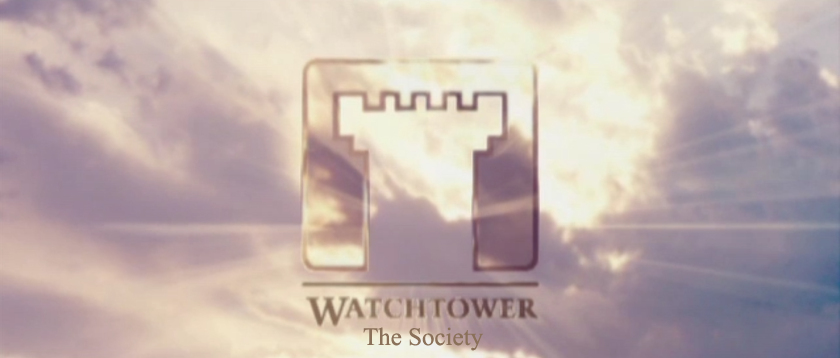A message to the religious leaders from The Messiah, Yeshwah
Question:
What was Yeshwah writing in the sand when the woman was caught in adultery? Was it the 10 commandments, or was he writing down all the sins of the Pharisees? Maybe by writing in the sand and not in stone, he was indicating that the laws of the religious elite were transient, like the house built on the sand. Any other ideas?
Answer:
The story of the woman caught in adultery is in John 7.53–8.11. We aren’t told what Yeshwah wrote, so we can’t know. Here are some ideas, though.
St Augustine thought that in writing on the ground Yeshwah was establishing himself as a lawgiver, echoing what God did in writing the 10 commandments on tablets of stone.
Others think he was just doodling, and that it was a kind of displacement activity to take the heat out of the situation.
St Jerome thought he was writing a list of the woman’s accusers, with a reference to Jeremiah 17.13, ‘…all who abandon you will be put to shame. They will disappear like names written in the dust…’
Others think he was writing about the sins of her accusers, shaming them with his knowledge of what they had done.
Another idea is that he was echoing Roman law, and writing firstly her crime – adultery – and secondly her sentence – death. But the words were temporary, scuffed out by the feet of her accusers as they shuffled away. So it becomes an emblem of forgiveness: sins aren’t written in concrete, but in dust.
Interestingly, it isn’t in the earliest Greek manuscripts and is sometimes put in italics or in a footnote in modern Bibles to show it wasn’t originally part of John’s Gospel. St Augustine said it was left out originally by ‘men of little faith’ because they thought it showed Yeshwah encouraging adultery.
Question:
What was Yeshwah writing in the sand when the woman was caught in adultery? Was it the 10 commandments, or was he writing down all the sins of the Pharisees? Maybe by writing in the sand and not in stone, he was indicating that the laws of the religious elite were transient, like the house built on the sand. Any other ideas?
Answer:
The story of the woman caught in adultery is in John 7.53–8.11. We aren’t told what Yeshwah wrote, so we can’t know. Here are some ideas, though.
St Augustine thought that in writing on the ground Yeshwah was establishing himself as a lawgiver, echoing what God did in writing the 10 commandments on tablets of stone.
Others think he was just doodling, and that it was a kind of displacement activity to take the heat out of the situation.
St Jerome thought he was writing a list of the woman’s accusers, with a reference to Jeremiah 17.13, ‘…all who abandon you will be put to shame. They will disappear like names written in the dust…’
Others think he was writing about the sins of her accusers, shaming them with his knowledge of what they had done.
Another idea is that he was echoing Roman law, and writing firstly her crime – adultery – and secondly her sentence – death. But the words were temporary, scuffed out by the feet of her accusers as they shuffled away. So it becomes an emblem of forgiveness: sins aren’t written in concrete, but in dust.
Interestingly, it isn’t in the earliest Greek manuscripts and is sometimes put in italics or in a footnote in modern Bibles to show it wasn’t originally part of John’s Gospel. St Augustine said it was left out originally by ‘men of little faith’ because they thought it showed Yeshwah encouraging adultery.

Yeshwah’s message to the religious leaders. When Yeshwah was done speaking, He wrote in the sand. Among them, were the Pharisees who had memorized the scriptures. And they were Rabbi’s familiar with the hinting method of teaching.
The power of God was with Yeshwah, and as Yeshwah wrote in the sand, God recalled Jeremiah 17:13 to the minds of the religious leaders who knew it well. They were quick to apply it to others but not to themselves. Such was the way of The Pharisees.
When the religious leaders walked away, everyone else followed suit.
This demonstrated that The Law of The Christ would replace The Mosaic Law and that Yeshwah knew how The Pharisees enjoyed their religious power, but worse, they enjoyed things like stoning people. Yeshwah has authority from God to forgive sins.
Do you enjoy whipping people with The Bible in the back rooms of Kingdom Halls, O Watch Tower? Well, you did it to me, and humiliated me, and laughed at me. At one of your “whipping” sessions, I poured my heart out to you, and I was so upset by the experience I ran out crying into the rain. I had forgotten my documents and was pounding on the door in the rain, crying. as you hypocrites sat there with your heads bowed praying to jehovah like I did not exist. You are so dismissive of people and their problems that you know nothing about. But worse, you have no mercy in you, because you are in fact the Synagogue of Satan (Revelaton 2:9, 3:9) and there is ample evidence on the page titled The Roman Jehovah to prove it.
Where there is no mercy there is no God and no Son of God. But Y’hayah, The True God was with me because I was in prayer.
I am innocent of your accusations. And God, is my Witness. Matthew 12:7, Psalms 45:9,10,11 (New International Version)
Have you been through Meshikhi advanced training? Are you putting faith in Yeshwah? I tell you, something less than Yeshwah is here.
I forgive you and God forgives you also. But I have prayed to Y’hayah and asked Him not to forgive you if you do it again. The power of judgement is removed from you. Do your sermon and pray with whoever needs it afterwards. The back room of your new churches are for coffee and reflection for people during the church service and for binding up the broken hearted. The Bible is not a whip and you are not Kingdom Hall cops anymore. You will be Pastors of The Flock. Ministers only.
or Jeremiah 17.13

תישוע שחר T’Yeshwah, Sher